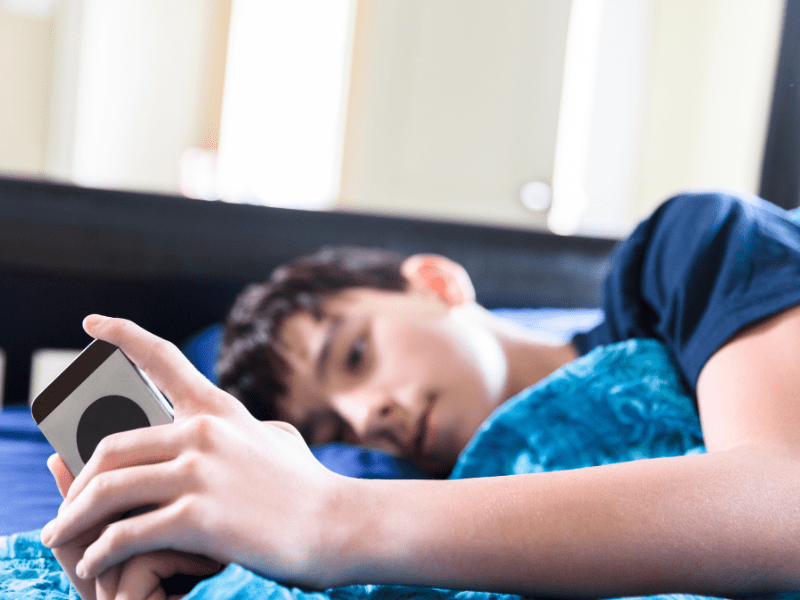
My 13-year-old has an iPhone.
The reality of that sentence makes me deeply uncomfortable, almost ashamed. It makes me wonder if I’m a fraud. As a child psychologist who focuses on families and relationships, I know that phones get in the way of almost every single developmental need of today’s teenagers. The science is overwhelming, after phones entered the picture, teens spent more time alone, delayed getting their driver’s license, stopped dating, felt “uncomfy” making small talk, IQ scores dropped, suicide has dramatically spiked, and teens across the world felt significantly more lonely and increasingly anxious.
Learn more about the realities, impacts and outcomes of teens with phones.
The arguments I have seen families get into over phone use are often unbelievable. Just five years ago, I would look for the trigger patterns for explosive adolescents and families were shocked when they realized the holes in their walls were all related to asking the 15-year-old to get off a screen. Today, families all know that the phones are the issue, but we feel helpless and stuck because we don’t want our children to be left out.
FOMO Becomes Survival
The human drive for belonging– and conversely our fear of being left out aka FOMO – is deeply rooted in our DNA. Since the beginning of humanity our very existence has relied on our ability to develop relationships within our tribes for both procreation and protection. At the same time, we are genetically driven to ensure their specific genes survive in the gene pool. These two drives meet when your child is left out– which explains that gut-wrenching, anxious, crazy feeling we get when our kid isn’t invited to a birthday party. But when you’re parenting a teen in 2024 you get this feeling every day when your kid be involved in the latest digital conversation because they don’t have SnapChat, Instagram or TikTok…
Now that I have made the decision to get my 13-year-old son an iPhone, I’m stuck fighting the daily battles with him that I desperately wanted to avoid. I’m fighting for his attention, his confidence, his relationships, his reading, his ability to push himself out of his comfort zone… What I worry about the most about are the devious algorithms that were designed specifically for who he is today– which never push him to incorporate a new perspective or idea.
Even worse, I’m battling my own anxiety about what will happen in the future; If he wants to stay home one night, my psychologist brain leaps to, “He is going to be exactly like all of those studies and he will NEVER leave the house!” None of this is true, by the way… my son is an empathetic, responsible, and social young man who hangs out with people, in person. I am thankful, for now…
Rock Meet Hard Place – Your Teen With A Phone
This is where parents are totally stuck. We can choose the anxiety and conflict related to a teenager with an iPhone OR the nervousness and pain of our teenager being left out. Both are super hard. For me, the fear of being left out won when my son changed schools twice in the last two years. To be totally honest, I think the phone was a good decision for us, despite the nightly arguing and screen-time password issues.
Fortunately, there is hope that parents won’t have to choose between two terrible options. We know the dangers of the phone and we know the dangers of being left out. The only way forward for us, collectively, is to dramatically limit the amount of time phones are in the hands of our teenagers. It won’t work if its only one or two of us… we have to make the decision as parents, school boards, congress members, humans… TOGETHER.
The biggest issue with phones is that they get in the way of real relationships– they stop our personal tribes from forming. The irony is that this path will require us to rely on our tribes and make big changes as a group. This work will be hard… I know it, but I can’t help but believe that this collective fight for our children will only make us stronger as a whole.
If your teen is struggling with self-esteem, mental health, and other issues related to their phone usage: LEARN MORE HERE.
Fostering growth through connection.

